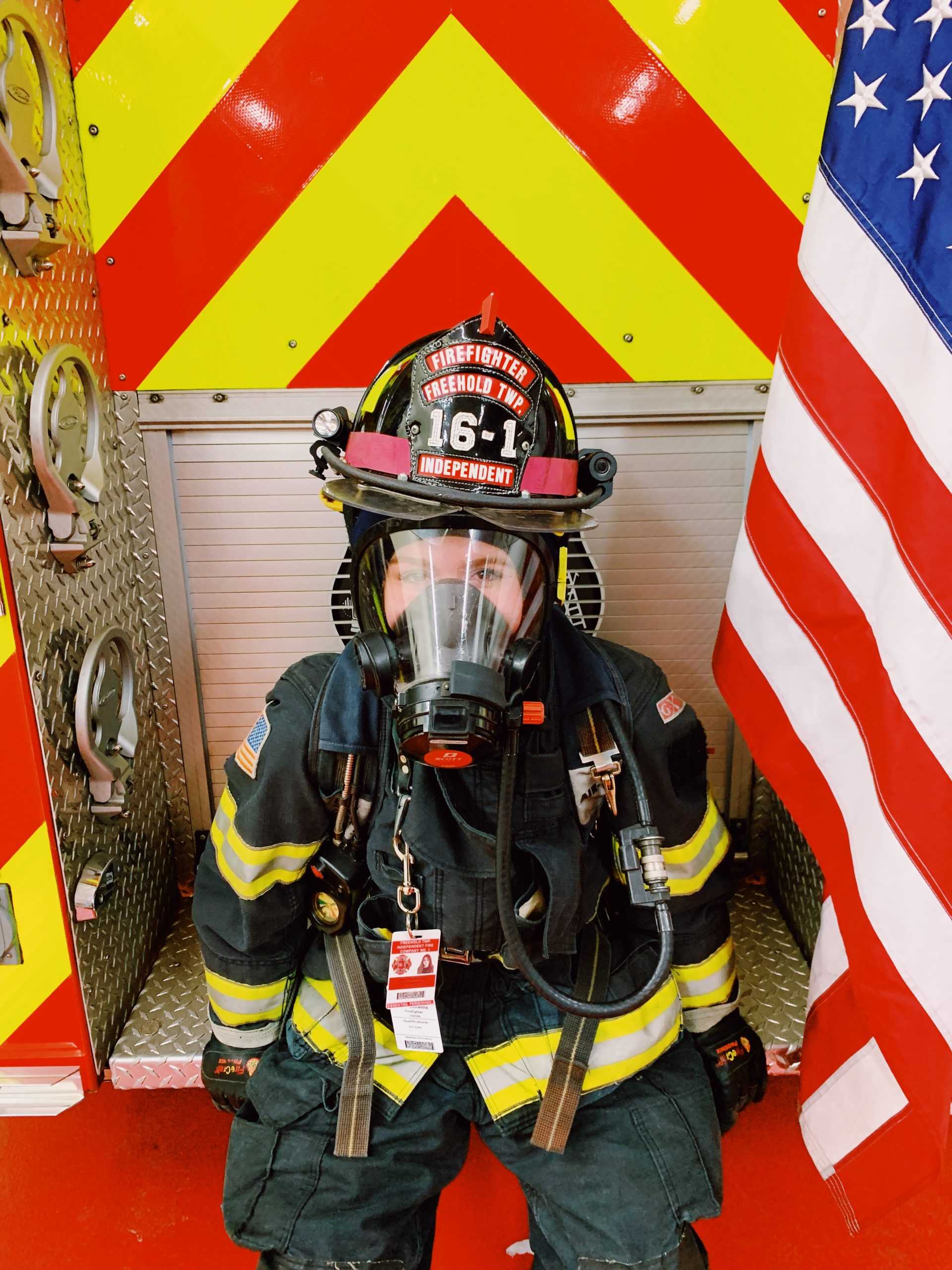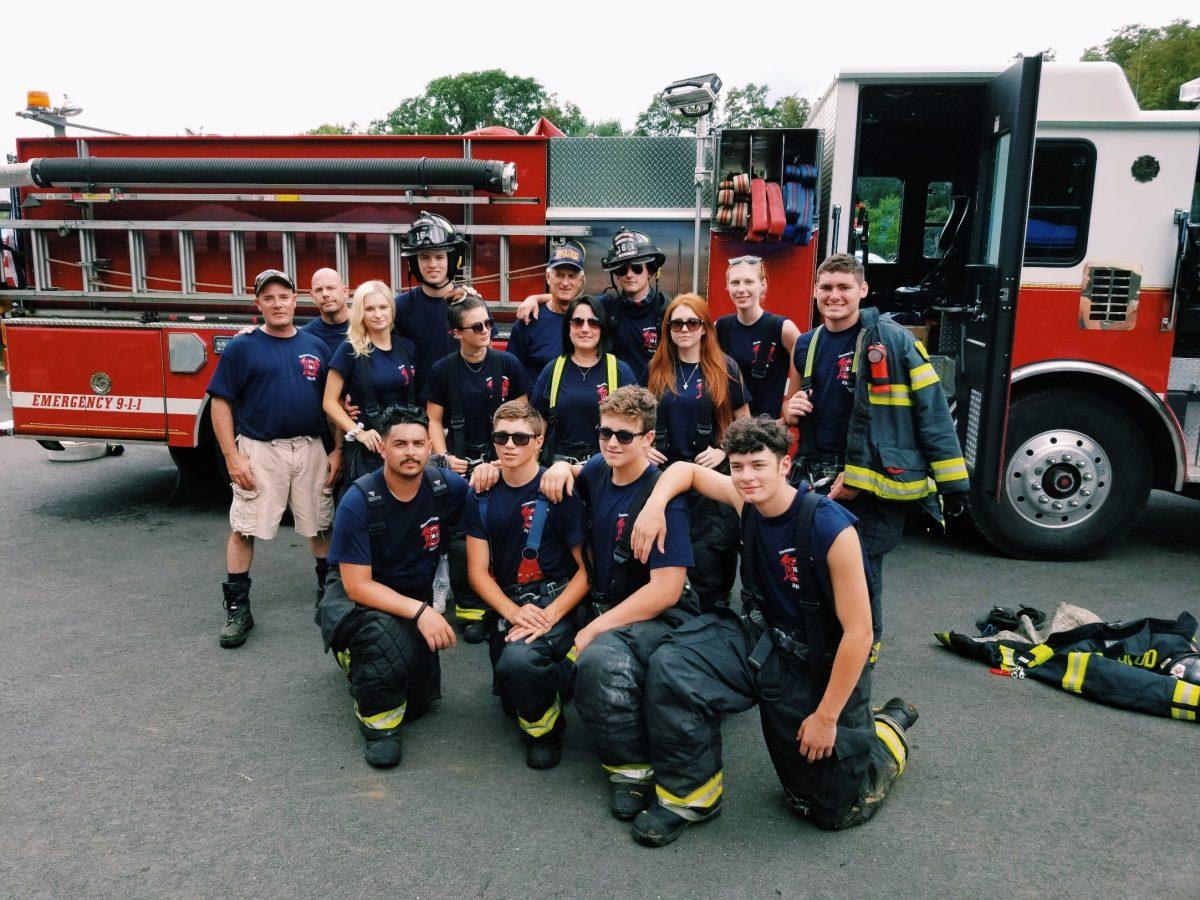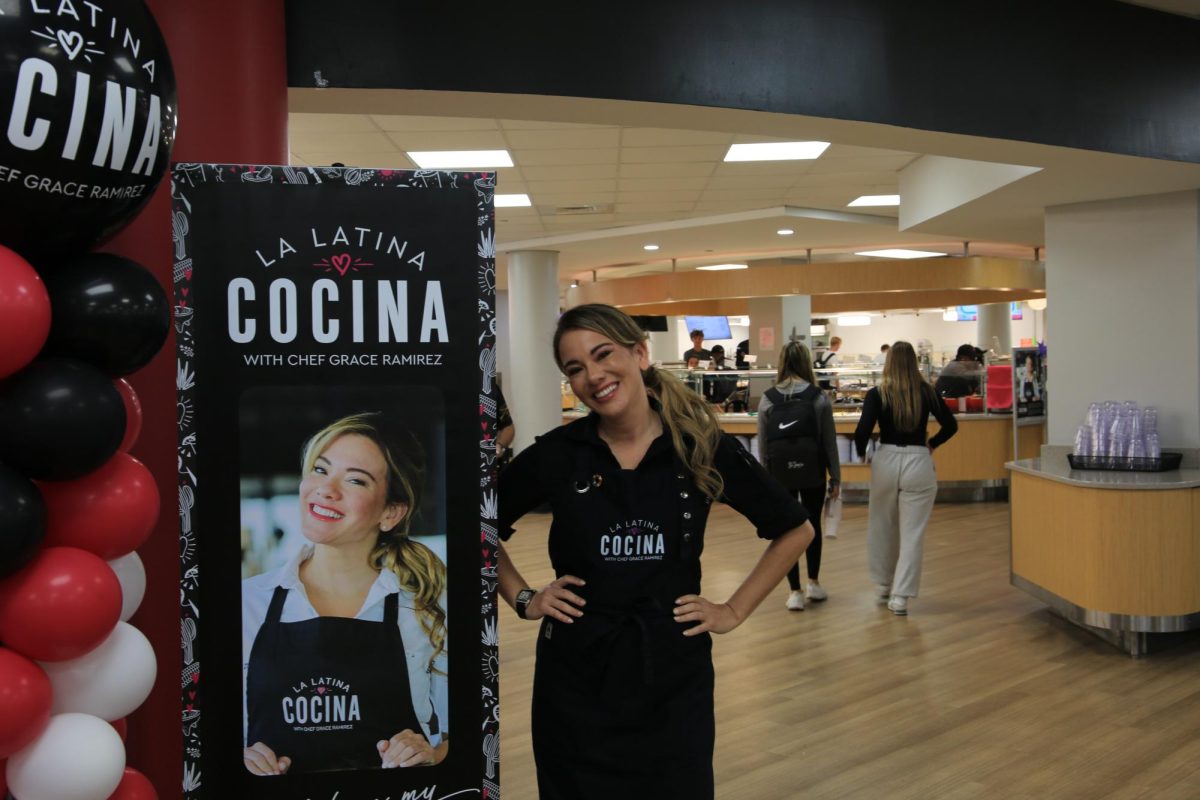If you were to ask around, most college students would never run into a burning building. For volunteer firefighter Starr McKenna ’21, it is almost a natural instinct. McKenna began volunteering as a firefighter in her hometown of Freehold, New Jersey in the summer of 2018.
With her mother working in retail and her father working with computers, McKenna said she is not quite sure where her interest in first responding came from. She offered one possible explanation.
“When I was younger, I had the ridiculous idea that I wanted to be a superhero,” McKenna said. “I would see these awesome female lead roles in movies and it made a burning desire for me to be a hero, so I guess I found a way to do that.”
At St. Joe’s McKenna is pursuing a double major in psychology and criminal justice, in hopes to someday go into federal law enforcement.
“That was always my career goal, and I found firefighting along the way just from being an adrenaline junkie,” McKenna said.
McKenna attended the fire academy during the summer of 2018 where she finished second in her class. At the academy, McKenna said she had to learn basic medical training, like CPR, fire safety, search and rescue and how to properly put on the gear in under two minutes. Known as the two-minute drill, this includes everything from the boots all the way up to the facemask.
“There’s different types of fire calls,” McKenna explained. They can range from an alarm going off in a Walmart, to car accidents, to a full blown blaze, or simply resetting an alarm for an elderly individual.
Dan Spicuzza, first assistant to the chief in the Freehold Township Independent Fire Company No.16-1, said McKenna is one of the best volunteers to work in the department.
“I’ve been in this company for 23 years,” Spicuzza said. “Starr has a lot of heart, dedication and drive to do a job that 90 % of the world would run away from.”
McKenna’s first call to a fire was in November 2018, the last day of Thanksgiving break.
“There was a huge storm, so the roads were flooding everywhere [and] we had already done at least six of seven water rescues that night,” McKenna said.
McKenna said the fire call was labeled “confirmed working,” which means there is visible evidence of fire. Storm conditions that night put other lives and surrounding homes at risk, so Dept. 16-1 did not hesitate to head to the scene.
Spicuzza said McKenna dealt with the situation very well when they arrived on the scene.
“For somebody who has never been in a fire before, unless it was training, [she] went in without a problem,” Spicuzza said.
As they got to the scene, McKenna said that the one story rancher was completely up in flames, with fire extending to the cars parked out front.
“We were working on putting this fire out while also trying to put out the car fires,” McKenna said. “And every natural element working against us.”
McKenna said although the training the fire academy provides is extremely thorough, it isn’t the same as the real thing.
“When you’re in the fire academy, you almost know what you’re getting yourself into,” McKenna said. “They can black your mask out and make you feel like you have no depth perception. But the thing is you’re not entering a real house, so there’s no items around you.”

This is the first thing McKenna noticed when she walked into the rancher on that stormy night in November.
McKenna said when she entered the house, she used her hand to guide herself along the wall since she had limited visibility due to the smoke from the fire. She lost grip on the wall and fell to the ground.
“I reach down and I can feel stuffed animals and chairs,” McKenna said.
Luckily the residents of the home were already taken out, but McKenna said the home was extremely damaged, causing her and her department to be evacuated from the scene.
“It was definitely one of the scariest things I’ve ever done in my life,” McKenna said.
From zero visibility when you enter a home, to hearing the sound of your own breathing, McKenna explained that it is important to know what you’re doing when entering each situation.
“Looking back and making sure you’re doing what you were trained to do can keep you somewhat calm in those situations,” McKenna said.
McKenna said that this affected her both physically and mentally when she returned to campus the next day.
“I was literally sneezing out black soot for like a week,” McKenna said.
In addition, McKenna described the mental toll this experience had on her.
“There’s a switch that goes off when you’re on a call,” McKenna said. “I’ll hear a kitchen timer go off, and you’ll see a change in my general body language and facial expression.”
Halle Kopecki ’21, a friend and sorority sister of McKenna’s, said she admires McKenna’s work ethic.
“She’s one of those people who puts her all into everything she does,” Kopecki said. “She [volunteers] because she wants to make a difference and help people.”
Brittany Romeo ’21, McKenna’s friend and roommate, said living with McKenna makes her feel safer.
“Having Starr in any situation makes you feel like you have an advantage,” Romeo said.
Spicuzza said McKenna’s work in the department is admirable.
“I wish that some of the men in my company had the heart and drive and the passion to be a volunteer like she does,” Spicuzza said. “I couldn’t be more proud to have her on the department”
In addition to the rush of adrenaline, McKenna said that helping people is her favorite part of volunteering as a firefighter.
“There’s no feeling like when your tones drop and you get to ride on the engine,” McKenna said. “And you know you’re on your way to make somebody’s day a little less hard.”















































